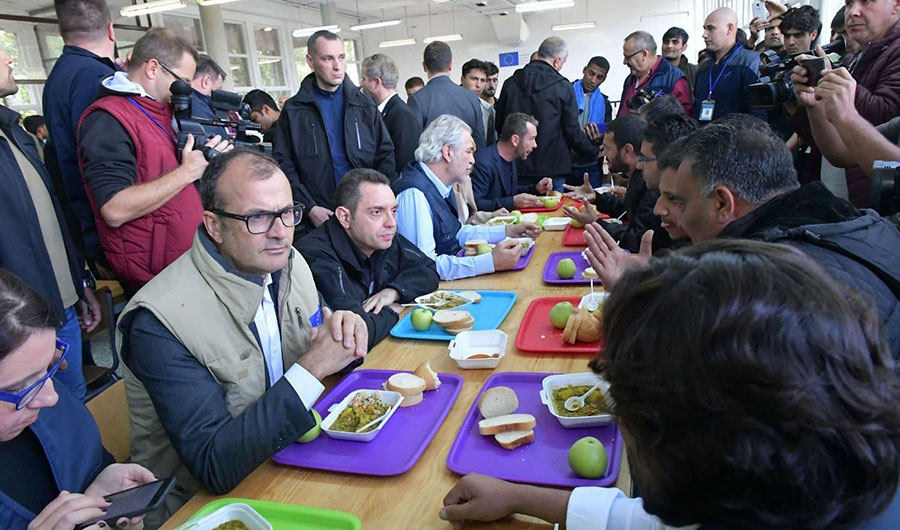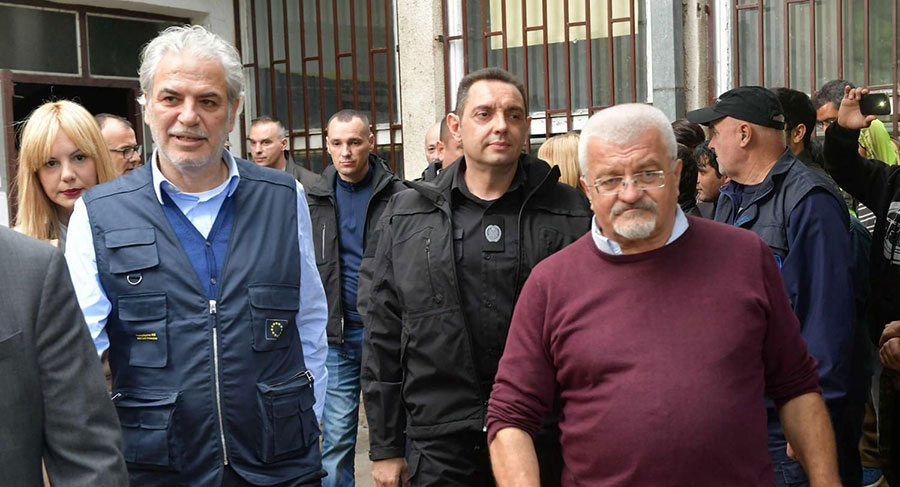The European Union will allocate additional EUR4 million in humanitarian assistance to help the migrants in Serbia, European Commissioner for Humanitarian Assistance and Crisis Management Christos Stylianides announced during a visit to the migrant reception centre in Obrenovac, whose reconstruction has been funded by the European Commission, paid together with Serbian Defence Minister Aleksandar Vulin and Commissioner for Refugees and Migration Vladimir Cucic.
“With additional EUR4 million we will provide education, food and protection for migrants and meet any other need they might have. EU assistance for migrants in Serbia will soon reach EUR25 million,” European Commissioner said.
Stylianides said that previous humanitarian aid was used to support the reconstruction of 11 reception centres, such as the one in Obrenovac, a statement released by the Ministry of Defence reads.

FoNet
“Since the outbreak of migrant crisis, the European Union has allocated a total of EUR80 million for Serbia,” Stylianides said.
He commended the efforts made by the Government aimed at integration of migrant children into the education system and announced that the EU would continue to support informal education activities implemented at reception centres for children left out of the formal education system. He also added that that transportation to schools would be provided to children because, as he put it, education is not a luxury but a basic need, the statement reads.
Minister Vulin thanked the Commissioner for assistance and support provided to Serbia. “We could always rely on him for support. Regardless of the fact that Serbia is not an EU member, he has always treated us as part of the Union. I would like to thank this man and a friend of ours who has been there for Serbia in times of trouble,” Vulin said and reminded that there were some 4,000 migrants registered in Serbia, majority of whom were residing at reception centres.
Minister Vulin added that they were taken care of, protected and provided with health care and legal aid as well as access to education and the asylum system.




